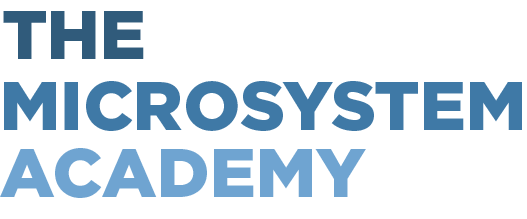Programs /
Team Coaching Program

Team Coaching Program
Helping teams to achieve improvements that they have only imagined
The Team Coaching Program improves the value and quality of health and social systems of care to help and coach frontline interdisciplinary clinical and supporting microsystems with knowledge, processes and tools including the Microsystem Improvement Process (MIP). The program is grounded in multiple disciplines, theories, and original research focused on cultivating improvement and group dynamic capabilities, especially valuable during times of uncertainty and challenge. The discipline of team coaching builds on Edgar Schein's wisdom in "helping" rather than "telling" what to do. Engaging in dialogue based on curiosity and humble inquiry to develop supportive relationships, explore new possibilities, innovate, and assess desired improvements is core to the program.
The Program is an intensive, dynamic, and highly interactive 6-part series that offers a unique curriculum that blends the art and science of team coaching, improvement science including measurement and effective communication and team-building knowledge and skills. The applied theory of team coaching comes to life with the coach learning to help individual team members successfully work together to achieve their improvement goals. This program provides the overview and the individual components of the three phases of "The Team Coaching Model." Each participant will benefit from group and one on one learning with an assigned faculty member.
Coaches in Training (CITS) in this program will learn:
- Fundamentals in applied clinical microsystem theory and practice.
- A structured organized process (The Team Coaching Model) for coaching interprofessional teams who are working to improve healthcare, communication, relationships, and team dynamics.
- Team coaching skills and capabilities to advance leadership.
- To develop an individualized coaching plan for personal and professional development as a team coach
Who should take this Program?
Anyone interested in helping and coaching improvement teams including:
- Coaches of teams
- Improvement team leaders or facilitators
- Health professional educators
- Leaders/managers at all levels
- Patients and Families
- Quality Improvement staff
Program Completion:
Participants who complete the program receive a certificate, a digital badge and a waived application fee for the Novice 1 Coaching Credential with the submission of a resume or cv.
Program Materials:
Required Books (to be purchased by the participant)
- Quality by Design. Nelson, Batalden, Godfrey, 2007
- Value by Design, Nelson, Batalden, Godfrey, Lazar, 2011
- Listening Well: The Art of Empathic Understanding. Miller, 2018
- Understanding Variation: The Key to Managing Chaos. Wheeler, 2000
- Helping: How to Offer, Give and Receive Help. Schein, 2011
- Humble Inquiry: The Gentle Art of Asking Instead of Telling, 2nd Edition. Schein, Schein, 2020
- The TEAM Handbook, Third Edition. Scholtes, Joiner, Streibel, 2003
Please contact us to learn about other strongly recommended books for managers/leaders, consultants/facilitators, LEAN Six Sigma organizations, data/measurement, learning organizations and other optional resources.
Participants are expected to have access to a personal computer, updated software, and reliable internet access. Online learning sessions are conducted via ZOOM, and participants are strongly encouraged to use a web camera during all online learning sessions. Participants will have access to course materials and upload assignments via a learning management platform such as Canvas.
I now see coaching as helping the team to understand their microsystem, determine what's important for patients, families, and staff and figure out how to bring excellence to their unit. Ownership and accountability for the outcomes of the unit lie with the members of the microsystem and the coach's role is to support them towards independently being able to continuously improve.
